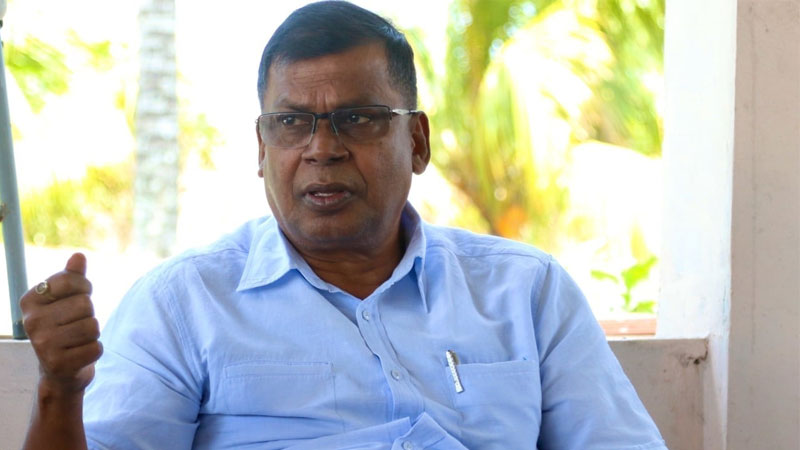
National Federation Party Leader Professor Biman Prasad says it is shameful for the Minister for Economy Aiyaz Sayed-Khaiyum to talk about historical expected growth in 2022 because no amount of spin will take away the fact that our economic management in the last 7 years has been a disaster.
Professor Prasad says what Sayed-Khaiyum failed to mention was that our economy was contracting even before COVID-19.
He says after a 15.2% contraction in 2020 and a 4.4% contraction in 2021 it is obvious that we would expect some recovery.
Prasad says Sayed-Khaiyum should have humbled himself and said that we are expecting to make a recovery this year but we had a lot of support from our donors, relatives and friends outside of Fiji in 2021.
He adds what Sayed-Khaiyum also failed to mention was that our personal remittances was $652 million in 2020 and $752 million for the first 11 months in 2021.
Prasad says they all want the economy to recover as soon as possible but we must tell the truth that expected growth in 2022 will be from pent-up demand and an increase in tourism numbers.
He also says the handling of the COVID crisis by our government has been a disaster and government should use press conferences to thank the donors, businesses and the people that drive the economy and not brag about the fact that suddenly we are going to have this historical growth.
Prasad says that is a bit too much.
Acting Prime Minister Aiyaz Sayed-Khaiyum had earlier said that the Macroeconomic Committee recently released the revised economic growth numbers with a double-digit growth projected for this year which may be the highest ever growth experienced in Fiji's history.
Sayed-Khaiyum says an 11.3% growth is projected for this year, 8.5% growth in 2023 and 7.7% growth in 2024.
He says we suffered a serious pandemic-driven blow in 2020 with the largest economic contraction ever of 15.2%. Economic contraction in 2019 was -0.4% and contraction in 2021 was 4.1%. Sayed-Khaiyum says this turnaround was only possible due to their concerted effort to secure vaccines early, effectively rollout those vaccines, and reopen our borders and the economy.
He says at end of 2021, foreign reserves stood at $3.2 billion equivalent to 9.9 months of import cover.
Sayed-Khaiyum says this is the first major crisis during which we have not had a balance of payments or foreign exchange problem or a devaluation.
The Acting Prime Minister says this is despite the closure of our largest foreign exchange earner, tourism, which brings in about $2 billion annually.
Sayed-Khaiyum says that's why Government also borrowed from external sources like ADB, World Bank, AIIB, JICA and sourced budget support grants from Australia and New Zealand.
He says had the Government not borrowed externally there would have been a very high risk of a devaluation.
The Acting Prime Minister also says Government’s Debt to GDP ratio rose from 53.3% in 2006 to 56.2% in 2010.
He says following this, the Debt to GDP ratio was on a steady downward path declining to 43.5% in 2016 to 2017.
Sayed-Khaiyum says then we had TC Winston and many other natural disasters that required additional borrowing with the Debt to GDP ratio rising to 48.4 % in 2018 to 2019. He says fast forward to the COVID-19 pandemic, tax revenue fell by 50% on average every month which resulted in a 12-month loss of over $1.4 billion.
The Acting Prime Minister says the economy experienced the largest ever contraction of 15.2% in 2020, a loss of GDP equivalent to almost $2 billion.
He says Government had to increase its borrowings to sustain public expenditure and provide over $500 million in unemployment support and other relief measures.
Sayed-Khaiyum says this led to an increase in the level of debt.
For 2020 to 2021, the Debt to GDP ratio would have been 14.4 % lower if we assume nominal GDP remained at 2018/2019 levels (pre-COVID).
He says, therefore, once the economy recovers to pre-COVID levels, Debt to GDP levels will fall.
We have sent further questions to Sayed-Khaiyum regarding the comments made by Prasad and are awaiting his response.
Stay tuned for the latest news on our radio stations


